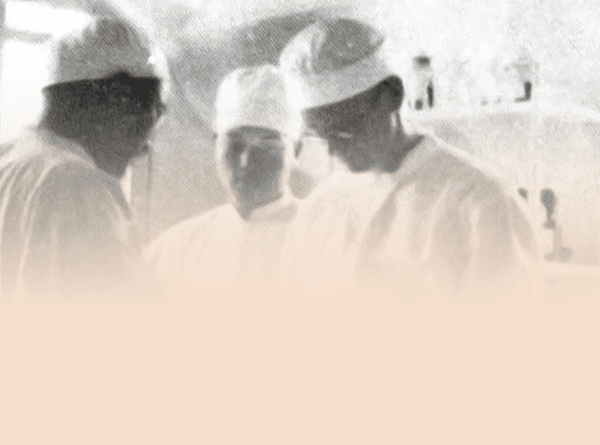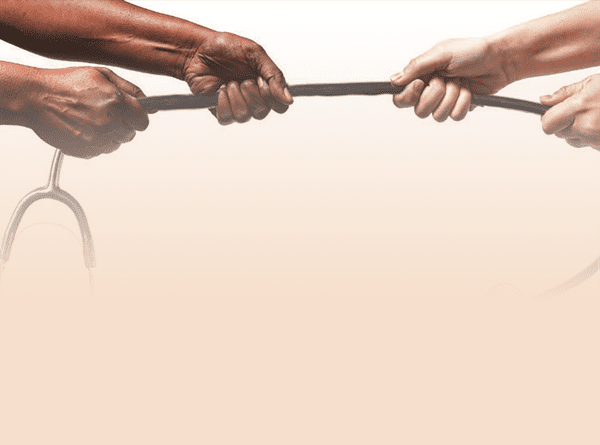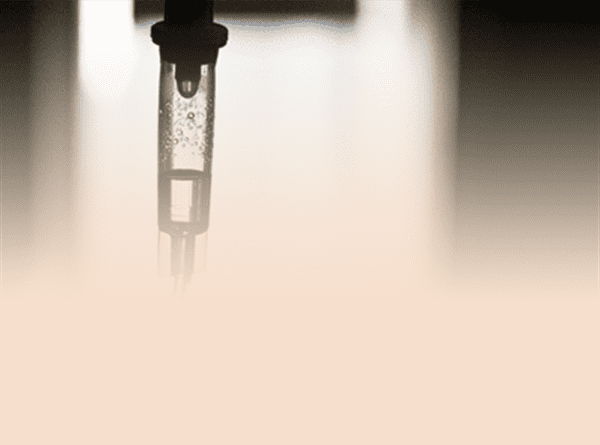Opinion
Letters to the editor are always welcome. This page is planned for more than an opinion or reaction. It is set aside for CMS members to articulate their stances on relevant topics Contributions are serious attempts "to know accurately" in some area pertinent to medicine and to "order for use" an attitude or action that seeks the glory of God.
By Richard B. Stewart
Christian Medical Society Journal, Winter 1977, Volume VIII, Number 1.
I do not carry malpractice insurance. Originally I decided not to carry it simply because I could not afford it. Now, however, I practice uninsured as a matter of principle.
I want my practice to be a highly personalized one. 'While getting to know every patient personally and in depth is quite difficult, that is the goal I have set for myself. My office staff knows that I can only see an average of fifteen patients a day and still have time to talk with those who want to talk. For me, the most important moment in my life is now (since it is the only moment I ever have) and the most important person in my life each now is the one I am with. Therefore, each of the fifteen patients whom I see becomes the most important person in my life during that encounter.
During these appointments, I both give and receive. 'When a patient enters my office, instead of thinking only, "'What can I give this person?" I think, "'What can this person give me? 'What can I learn from my patient's life and experience that will help me be a better Christian?" To determine this, I must be willing to share myself with the patient, reveal myself, and even run the risk of damaging my image. In short, it means I must be honest, real and vulnerable.
It's much easier (and quicker) to write a prescription for a tranquilizer than to talk about depression or anxiety, especially to talk about my own depression if it is pertinent and beneficial to the conversation.
What does a personalized practice have to do with malpractice insurance? I have found that in dealing with patients as people, I cannot fail to get to know them well. More than that, I come to care about them, and they about me.
Frankly, a deeper doctor-patient relationship does not foster malpractice suits.
While in the process of writing this article, my hypothesis was put to the test. I was stunned by a call from an attorney who indicated that one of my patients intended to file a suit for $100,000. I was particularly surprised because this woman had consumed considerably more of my time and energy than any other patient. I called her and without any intention of manipulating her, I merely asked, "Please tell me what's going on. I have just received a call from your lawyer."
Tearlully she told me of problems she had had since we last talked. The superficial wound skin separation she had suffered following the surgery I performed was not healing as I had indicated. She admitted that in her anger she had lashed out at me. After the conversation, with no request from me, she dropped the suit.
As I reflected on the events over the next few days, I realized that the threat of the suit did not upset me, after the initial few moments of the conversation with the attorney. Naturally, I would dislike going to court and wasting countless hours. Though confident of my innocence, had I been covered by malpractice insurance, I would have probably called the insurance agent and allowed him to handle it. I could have won the case or a nuisance claim could have been settled, but in the process, I would have damaged the relationship with my patient.
There are two other reasons I do not carry malpractice insurance. First, I refuse to practice defensive medicine, which considers and covers every possible pitfall in diagnosis and treatment. I readily admit that I do not know all the answers in medicine, or even in my own specialzy. I am capable at any moment of making the wrong decision, but I have committed myself to do the best I can with what I have. Have I always done the best I can? No. Will I always do the best I can? No. But when I have done less than my best and it results in error or damage, then I will admit that I could have done better and take the consequences. I, not some insurance company, am responsible for my errors.
Secondly, I believe the current legal approach is inappropriate. For one thing the attorney's contingency fee seems to provide an incentive to sue for large amounts. Then too, juries are unqualified to judge malpractice cases. And the jury system becomes inefficient because of the inordinate amount of time expended in preparing, presenting and judging such suits.
Lest I be misunderstood, I do feel that patients need to obtain justice in the instance of legitimate malpractice. Every doctor is going to make mis takes - in fact, may make a serious mistake - at some time in his career. I don't know what the answer is for the medical practice as a whole, but as for myself, I accept responsibility for my actions, including my mistakes.
Being involved with my patients on the level of their deepest need, therefore, affects malpractice in two ways. It makes lawsuits unlikely. And when I honestly admit my mistake, and offer just recompense, it makes them unnecessary.
Richard B. Stewart, M.D., practices in Atlanta, Georgia .














